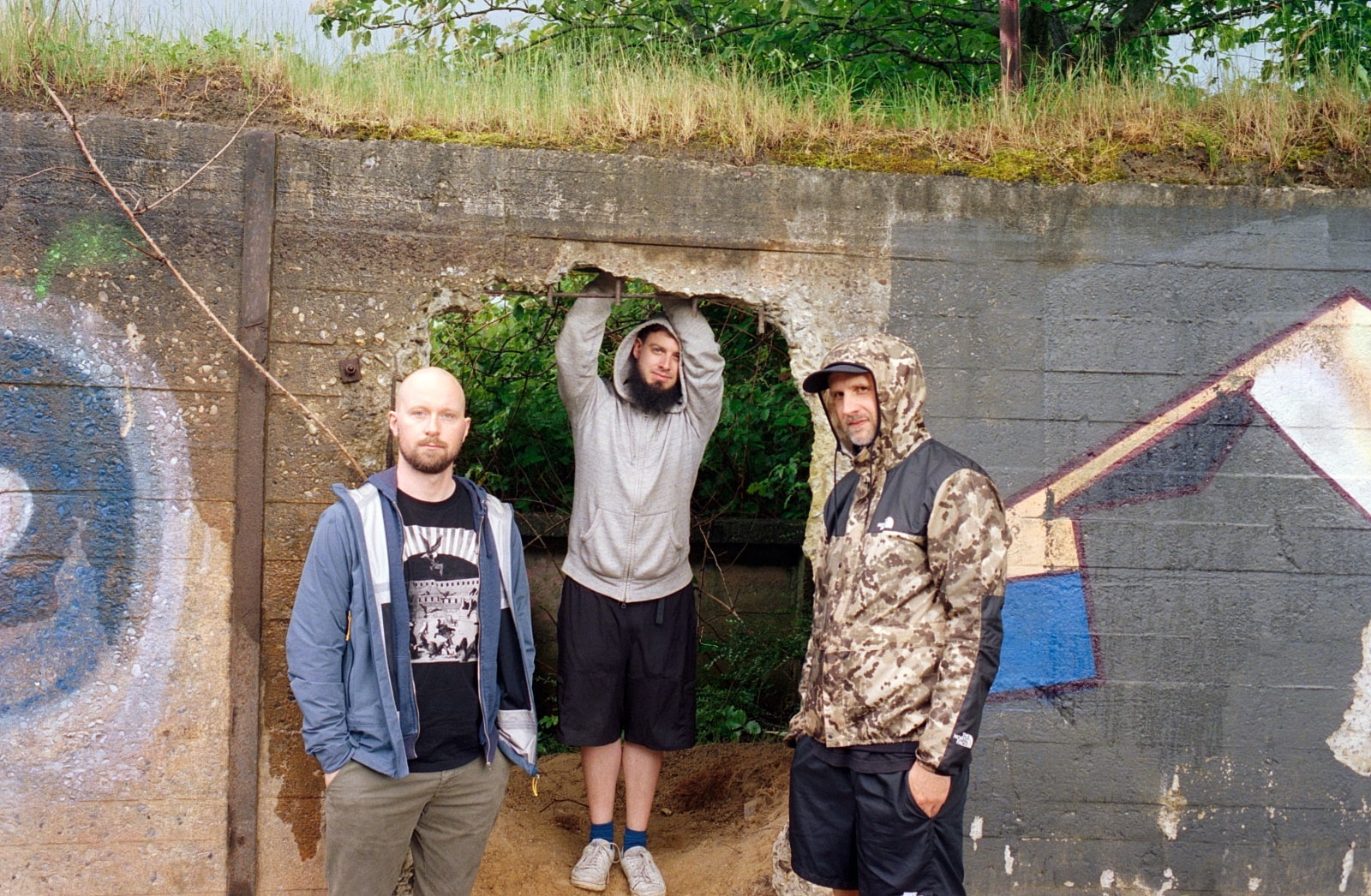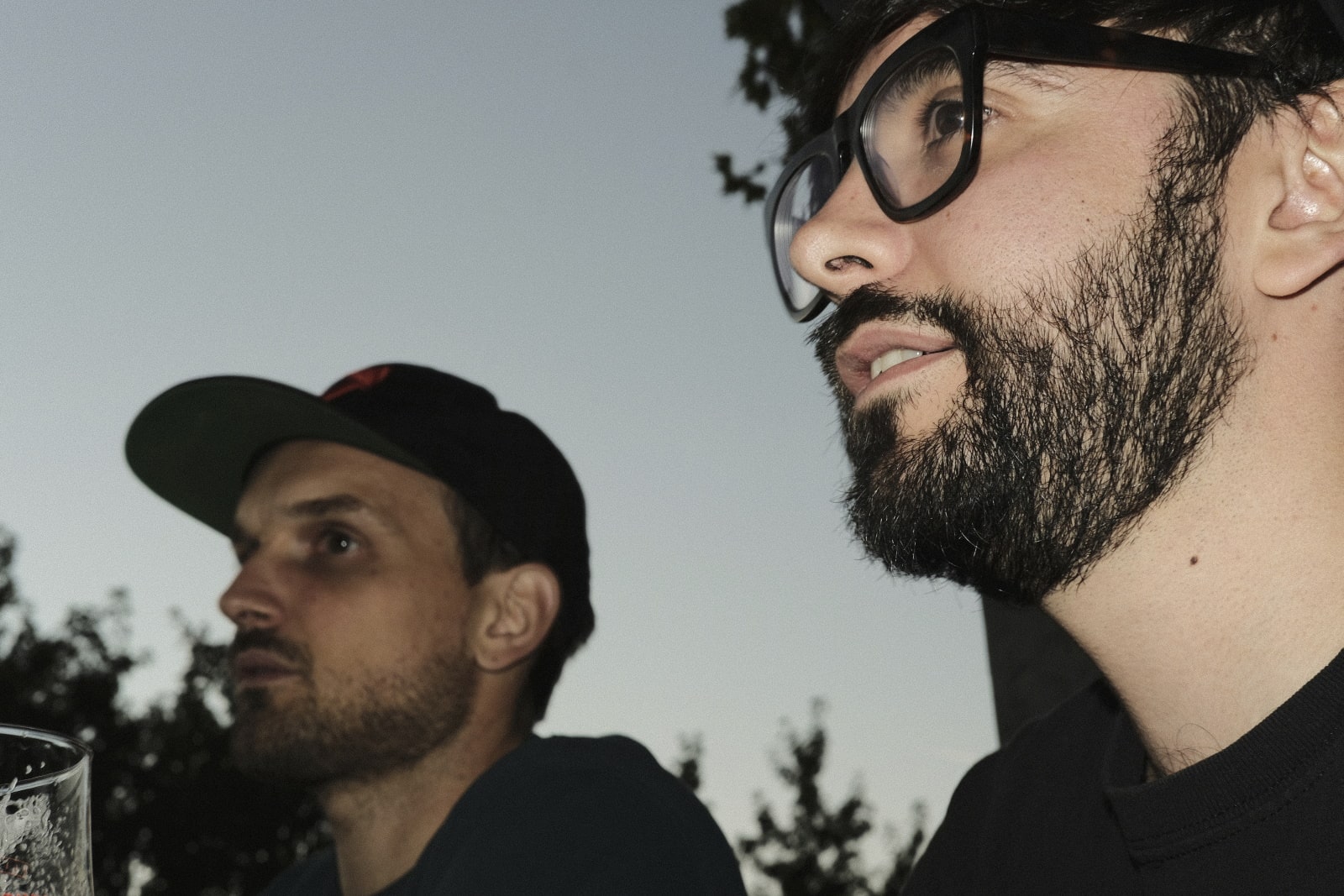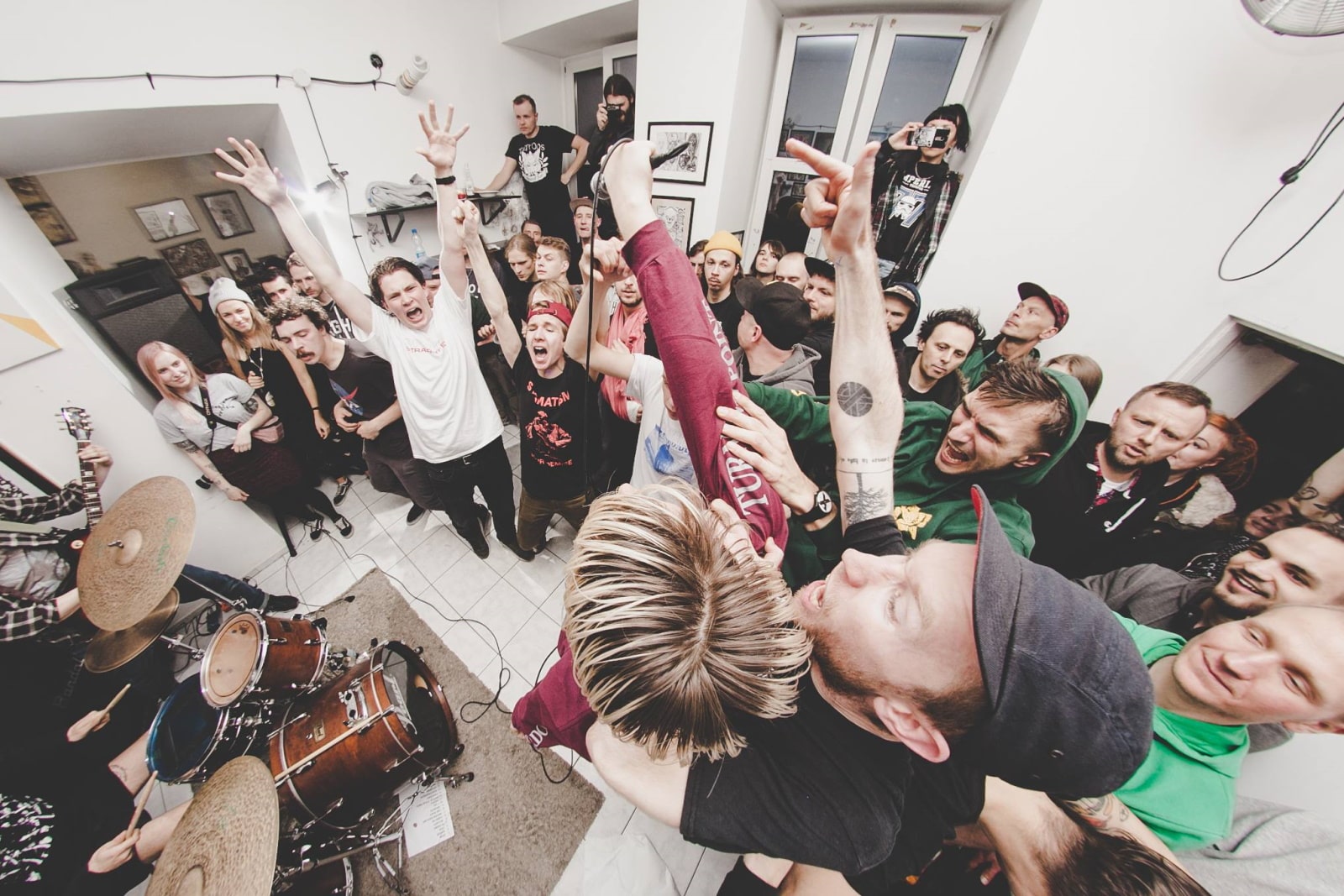Our recent guests from Danish dark, multi-faceted post hardcore band PUKE WOLF were recently interviewed by Thomas, their friend from metallic hardcore band KOLLAPSE, and we have teamed up to give you the full transcript of their discussion. Touching on various aspects of their unique sound and the band themselves, the full interview is available below.
“Interstice” by PUKE WOLF is out now via Dingleberry Records, 5FeetUnder Records, Heartland Records, and Jean Scene Creamers Records.
Interview with Puke Wolf, July 2022. Questions by Thomas Martin Hansen (KOLLAPSE).
Please introduce the band and provide us a little bit of a backstory as to how and why you three started the band.
EMIL VEGEBERG (guitar, vocals): Puke Wolf is a three-piece act out of Aarhus, Denmark. We try not to get too caught up in genres, but overall we consider ourselves to exist in the realm of post-hardcore, screamo and ambient. We’ve been playing live and recording for some time, and our second EP “Interstice” is out now digitally, and dropping on vinyl in late July/early August.
It started some years ago with Andrew and myself working together in a record store for a short time and talking about jamming. Andrew (Davidson, drums and vocals) and Lasse (Højgaard, bass and vocals) both played in The Manipulated – instrumental post-rock band – before, so Lasse joined us and it was really natural. We had a fourth member, Kenneth, on second guitar and vocals in the beginning, but he left to become a tech genius – and that’s where we are today.
Puke Wolf comes across as very sincere, passionate and sometimes also political. Can you tell the readers what fuels the band to make this particular kind of music?
EMIL: Our fuel is everyday life, social injustice, love, mental illness, confusion – it’s hard not to look at what’s happening around the world and feel frustrated and overwhelmed. When we wrote the album we looked on in almost disbelief as egotistical, power-hungry world leaders oppressed minorities – which has been going on for centuries – but somehow now it was all out in the open, sometimes it even seemed “legal”. But the real horror lies in the fact that the stories today are exactly the same as when we wrote the album a few years ago.
When it comes to our music, we hope to elicit some sort of response from the listener whether it be on a digital platform, on vinyl or at a show. People are clearly frustrated, so we invite them to share those frustrations with us – because we feel the same way. It’s almost therapeutic, cathartic.
We focus on making the listener feel us through minimalism, grandeur, optimism, pessimism and everything in between. Oh, and by tearing our hearts out and baring our souls whenever we can. Sometimes people get it, sometimes they don’t, but that’s cool. We just want to create an experience.
“Interstice” has a very distinct sound, especially on the guitars – how important is gear and musical aesthetics to you guys?
EMIL: Both have a place, but musical aesthetics more so than gear. We use whatever is around us, and try to make minimal setups sound huge. As the guitarist I focus on serving the song, and not showcasing my skills. And the same goes for Lasse and Andrew, I think.
The weird chord voicings and such, is a result of trying to fill up the space and create dynamics. We don’t care about perfectionism. We care about atmosphere.
In continuation – tell us a little bit about how you record.
EMIL: This time around we hooked up with Jens Moss over a weekend, and recorded the main stuff (drums, most guitars and most bass). Then we recorded vocals, produced the ambient stuff, sequenced, and recorded some more guitars/bass and such at my tiny studio afterwards. The tracks themselves were probably 90% written when we began recording, but after that we added the more atmospheric layers.
We spent most of the time tracking vocals and trying different ideas. In my studio we really delved deeper into the songs. As I mentioned before, we care a lot about creating an atmosphere, and it certainly was a creative space that we inserted ourselves into. We didn’t have genres in mind, we just did what we wanted to do, tried things, discarded them, reworked, molded, destroyed, created – and so on.
Does working as a trio give you any challenges or are there any benefits to the relatively stripped down line up?
EMIL: Definitely both. The natural limit becomes a good challenge and that’s a really big factor in our way of creating.
The biggest “bad” challenge is that ideas, musical directions and discussions (and sometimes even arguments) almost always end in a “2 vs. 1” situation. That, in itself, can get pretty exhausting. But we try to be as democratic as possible and make sure to communicate in the most open ways possible.
Your songs are fairly diverse, with elements from a lot of genres like hardcore, punk, indie rock – how deliberate is this? Is it just how you write or do the three of you spend time on discussing these matters?
EMIL: I would say it’s just how we write. As for discussions, it’s more of a “let’s avoid this, that and this, and build upon what’s not the obvious direction” type of discussion, if that makes sense. Sometimes we throw genres or bands in the “avoid” talk, but mostly we agree on how we sound, and try to do us, instead of focusing too much on (sub)genres and the like.
Who did the fantastic voice overs on “A Trembling of Finches”?
EMIL: Friends of ours, from all over. And ourselves. Andrew – who also wrote the poem – edited and mixed all the voices together afterwards.
Speaking of voices – the vocals on this album seem more confident and assertive than on your debut album, how do the three of you decide which member sings which part and do you consciously work to build their intensity? Are you simply “in the moment” or are things very deliberate? Please elaborate if possible.
EMIL: Sometimes it fits with whoever wrote the lyric, and sometimes we pass it on, depending on the intricacy of what we play underneath. Sometimes it’s the other way around, meaning that we kill the guitar, bass or drums, to make way for the vocals. The intensity is often very much a “in the moment” kind of thing.
We try different things, and sometimes we don’t even need to try. After a certain time of playing as a band, it’s almost as if we know who takes which part. I might like one of my own lyrics so much that I “veto” it, for myself, and Lasse and Andrew do this as well, but if it doesn’t suit my vocal, I will pass it on, for the sake of the song.
When we wrote our previous EP – Everything From Nothing – I was still the main lead on vocals, whereas Andrew and Lasse had just started exploring this option. So in between these two releases it has become much more of a thing that the entire band does as opposed to having one lead singer.
Puke Wolf utilizes samples as well as soundscapes on “Interstice”, how do you choose which samples to use and where do these ideas materialize from?
EMIL: The ideas materialize from a love to ambience, movies, twitter, hip hop, field recordings and so much more. The ambient stuff is sometimes played, chopped, looped, or none of the above. It may start as an idea from Andrew that Lasse has built upon and then I might mix it. It depends, really.
The rain, kids playing, and so on, is from Andrew’s vast catalog of field recordings that he recorded himself from all over the world.
There’s also noise from Lasse’s bedroom amp, and monologues scoured from everywhere. We fuck it up and make new sounds out of it.
Puke Wolf is a Danish band, which can seem somewhat exotic to listeners from (much) larger countries – how important is press coverage for a band like Puke Wolf and have you got any sort of relationship with the media today? What are your thoughts on this in general?
EMIL: I think we are somewhat of an introvert unit. We don’t do too much socializing as a band, and maybe that’s why we don’t have any kind of relationship with the media, besides a handful of people. We try to make the music speak for us, but are well aware that sometimes that’s not enough. With the new EP we actually try to get a bit out of our comfort zone, in that regard.
Press coverage is a factor, and we think this EP is worth more press coverage, so we try to play the game right in reaching out to zines and sites, but also getting help from our good friend Troels from Lasher Agency, our booking agency.
But we are beginning to understand that the things people like about our music (if they like it) is the same thing that makes it hard for us to fit 100% into the different scenes/genres and therefore media as well. It’s always easier to slap a genre on music and put it in a box, because that makes it easier for the users of said media to decipher. But we do sincerely hope that our music reaches an audience one way or the other.
As for the exotic thing: Denmark has got many great bands, in all eras and all genres, but it’s not something we think about too much. Denmark is also a complex country, with a lot of darkness, both literally and metaphorically, so I guess it’s in our DNA and our music as well, almost by proxy.
Any closing words?
EMIL: Thank you for reading this far. Thanks to Thomas for some great questions – also check out his amazing band, kollapse, that we all love dearly.
Hope to see everybody at a show somewhere. Otherwise you can definitely catch us on some social media stuff. “Puke Wolf” shouldn’t be too hard to find, right? And please write us, if you like our stuff. We are kind people.











